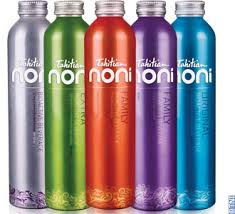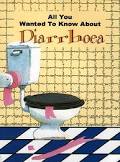suppliment
7:50 PM
Noni Juice - The miracle cure or the modern day unicorn
In our modern, scientifically informed times, "miracle cures" are far and few between. When they do surface they tend to illicit heated debate regarding their legitimacy and usually build dedicate followings both for and against. Noni juice is a good case in point. The juice of the morinda citrifolia fruit made its appearance on global markets in 1996 and experienced instant acclaim as a cure all. Since then the products popularity has seen meteoric growth with global sales now topping US$1 billion. The juice has a strong following of advocates of its nutritional and remedial characteristics and claims of its miraculous qualities abound. There are, however, many that believe that these claims are grossly overstated, and that the juice may even have negative side effects. This article will attempt to shed some light on this controversy and allow a more balanced and informed choice to be made when considering Noni juice as a health supplement.
What is Noni fruit exactly?

Morinda citrifolia is a tree belonging to the coffee family. Also known as Great Morinda, Mengkudu, Beach Mulberry, Cheese Fruit, Tahitian Noni or Noni (Hawaii), this tree is originally a native of Southeast Asia but has become widespread throughout the Pacific Islands, the Indian subcontinent, Costa Rica, French Polynesia and the Dominican Republic. At present Tahiti is the most prolific producer.
Growing to 30' or 9 meters tall, the tree is found on rocky or sandy shorelines and in shaded forests. A prolific producer of fruit, the average Morinda citrifolia can yield between 9 and 18 lbs (4-8 Kg) of fruit monthly throughout the year. The Noni fruit is approximately 1.6 to 2.8" (1 to 7 cm) long, oval in shape has the same "eyed" appearance of a pineapple but is lighter in colour. It has a pungent odour when ripening hence the name Cheese Fruit.
Pros:
The fruit is processed into two basic products Noni juice and pulp powder. The fruit pulp is rich in dietary fibre and carbohydrates ad other macronutrients, however Noni juice tends to be deficient in macronutrients only retaining fairly high levels of vitamin C. An outline of the concentrations of these elements found in Noni pulp and expressed as a percentage of a 100g serving, is listed below.
Carbohydrates 71%
Dietary Fibre 36%
Protein 5.8%
Total Fat 1.2%
Noni fruit pulp also contains several micronutrients namely high levels of vitamin C, niacin (vitamin B3), potassium, iron, sodium, vitamin A, riboflavin, thiamine and calcium. The pulp also contains many phytochemicals thought to be beneficial. These are not, however, limited to the Noni and are found in many other food plants.

Noni juice by comparison has very little nutritional value barring a high vitamin C content (approx. 34mg/100g). Noni juice has a nutritional content roughly equivalent to a raw orange.

From a non scientific perspective Noni juice has a long tradition history of curing or addressing just about anything from asthma to strokes. The juice and fruit of the noni has long been believed to possess many therapeutic qualities and the testimonies to this efficacy are legion. However, from a scientific perspective, Noni juice seems to be no more valuable than orange juice. The pulp powder on the other hand does seem to have considerable nutritional value and would qualify as a serious nutritional supplement.

Cons:
Noni products have been the focus of several studies concerning their possible negative side effects in specific applications. Morinda citrifolia has been linked to possible incidences of hyperalemia with concurrent potassium sparing diuretic use. Hyperalemia is a condition where potassium concentrations rise to dangerous levels. Noni juice is also thought to interfere with many medical diagnostic tests.
Noni juice has also produces negative side effects such as:
Fatigue

Headaches

Joint pain

Diarrhoea

Bloating

Gas

Heavy periods

Rashes

Boils and spots

Halitosis

coughing

Some of these side effects have been linked to allergic reactions to Noni juice, so caution is advised when trying the products.
In summary, the global Noni Juice phenomenon appears to be the result of good marketing rather than any wondrous characteristics of the product itself. And therein lays one of the possible dangers of Noni juice, that being unrealistic expectations. Scientifically, Noni juice does not appear to have any particular value other than a rich source of vitamin C. Noni pulp powder is a valuable source of carbohydrates, fibre, protein and other nutrients, but not to the point where it should enjoy Holy Grail status. Noni juice also appears to cause several negative side effects and allergic reactions. In short, although valuable as a source of vitamin C, it is doubtful whether Noni juice is a modern day miracle cure and it should be used with caution. If you experience any negative effects from consuming Noni juice, consult your doctor immediately.
Read more: http://www.articlesnatch.com/Article/Noni-Juice-A----Miracle-Cure-Or-Modern-Day-Unicorn-/763528#ixzz2EWQvazS9
Under Creative Commons License: Attribution No Derivatives
What is Noni fruit exactly?
Morinda citrifolia is a tree belonging to the coffee family. Also known as Great Morinda, Mengkudu, Beach Mulberry, Cheese Fruit, Tahitian Noni or Noni (Hawaii), this tree is originally a native of Southeast Asia but has become widespread throughout the Pacific Islands, the Indian subcontinent, Costa Rica, French Polynesia and the Dominican Republic. At present Tahiti is the most prolific producer.
Growing to 30' or 9 meters tall, the tree is found on rocky or sandy shorelines and in shaded forests. A prolific producer of fruit, the average Morinda citrifolia can yield between 9 and 18 lbs (4-8 Kg) of fruit monthly throughout the year. The Noni fruit is approximately 1.6 to 2.8" (1 to 7 cm) long, oval in shape has the same "eyed" appearance of a pineapple but is lighter in colour. It has a pungent odour when ripening hence the name Cheese Fruit.
Pros:
The fruit is processed into two basic products Noni juice and pulp powder. The fruit pulp is rich in dietary fibre and carbohydrates ad other macronutrients, however Noni juice tends to be deficient in macronutrients only retaining fairly high levels of vitamin C. An outline of the concentrations of these elements found in Noni pulp and expressed as a percentage of a 100g serving, is listed below.
Carbohydrates 71%
Dietary Fibre 36%
Protein 5.8%
Total Fat 1.2%
Noni fruit pulp also contains several micronutrients namely high levels of vitamin C, niacin (vitamin B3), potassium, iron, sodium, vitamin A, riboflavin, thiamine and calcium. The pulp also contains many phytochemicals thought to be beneficial. These are not, however, limited to the Noni and are found in many other food plants.
Noni juice by comparison has very little nutritional value barring a high vitamin C content (approx. 34mg/100g). Noni juice has a nutritional content roughly equivalent to a raw orange.
From a non scientific perspective Noni juice has a long tradition history of curing or addressing just about anything from asthma to strokes. The juice and fruit of the noni has long been believed to possess many therapeutic qualities and the testimonies to this efficacy are legion. However, from a scientific perspective, Noni juice seems to be no more valuable than orange juice. The pulp powder on the other hand does seem to have considerable nutritional value and would qualify as a serious nutritional supplement.
Cons:
Noni products have been the focus of several studies concerning their possible negative side effects in specific applications. Morinda citrifolia has been linked to possible incidences of hyperalemia with concurrent potassium sparing diuretic use. Hyperalemia is a condition where potassium concentrations rise to dangerous levels. Noni juice is also thought to interfere with many medical diagnostic tests.
Noni juice has also produces negative side effects such as:
Fatigue
Headaches
Joint pain
Diarrhoea
Bloating
Gas
Heavy periods
Rashes
Boils and spots
Halitosis
coughing
Some of these side effects have been linked to allergic reactions to Noni juice, so caution is advised when trying the products.
In summary, the global Noni Juice phenomenon appears to be the result of good marketing rather than any wondrous characteristics of the product itself. And therein lays one of the possible dangers of Noni juice, that being unrealistic expectations. Scientifically, Noni juice does not appear to have any particular value other than a rich source of vitamin C. Noni pulp powder is a valuable source of carbohydrates, fibre, protein and other nutrients, but not to the point where it should enjoy Holy Grail status. Noni juice also appears to cause several negative side effects and allergic reactions. In short, although valuable as a source of vitamin C, it is doubtful whether Noni juice is a modern day miracle cure and it should be used with caution. If you experience any negative effects from consuming Noni juice, consult your doctor immediately.
Read more: http://www.articlesnatch.com/Article/Noni-Juice-A----Miracle-Cure-Or-Modern-Day-Unicorn-/763528#ixzz2EWQvazS9
Under Creative Commons License: Attribution No Derivatives







